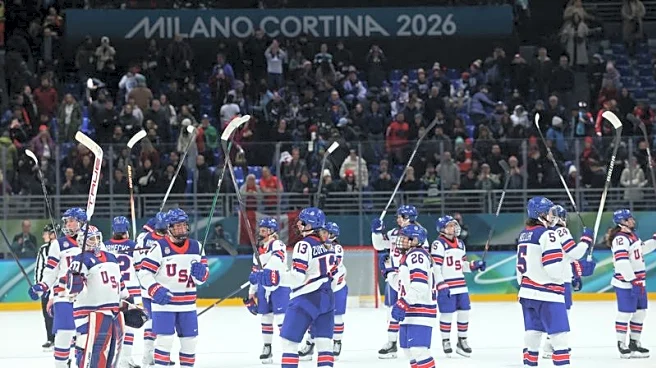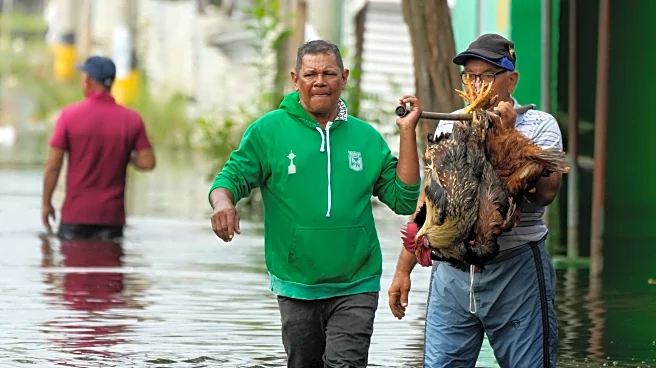What's Happening?
Israeli officials are expressing frustration over Hamas' slow return of hostages' bodies, accusing the group of exploiting the ceasefire to regroup and benefit from humanitarian aid. The delay is seen as a strategic move by Hamas, anticipating that U.S.
President Trump will not risk the ceasefire he brokered. Despite the ceasefire, tensions remain high, with Israel maintaining the closure of the Rafah crossing as a limited sanction. The U.S. is involved in mediating the situation, but Israeli officials are concerned about Hamas using the ceasefire to rebuild its capabilities.
Why It's Important?
The situation underscores the complex dynamics of Middle Eastern geopolitics, where ceasefires can be used strategically by groups like Hamas to strengthen their positions. The involvement of the U.S. highlights its role as a key mediator in the region, balancing diplomatic relations with Israel and the broader international community. The delays in hostage returns could strain U.S.-Israel relations if perceived as a failure to hold Hamas accountable. The ongoing tensions also pose risks of renewed conflict, impacting regional stability and humanitarian conditions in Gaza.
What's Next?
The U.S. is expected to propose a Security Council resolution to establish an International Stabilization Force in Gaza, composed of troops from Muslim and Arab nations. This force aims to oversee humanitarian efforts and prevent further escalation. However, Israeli concerns about the force's mandate and potential misuse of weapons remain. The situation may evolve as diplomatic efforts continue, with potential adjustments to the ceasefire terms or increased pressure on Hamas to comply with its commitments. The outcome could influence future U.S. foreign policy and military involvement in the region.
Beyond the Headlines
The delays in hostage returns highlight ethical and humanitarian concerns, as families await closure. The strategic use of ceasefires by militant groups raises questions about the effectiveness of international diplomacy in conflict resolution. The potential deployment of an International Stabilization Force could set a precedent for future peacekeeping missions in conflict zones, influencing global military and diplomatic strategies.


















